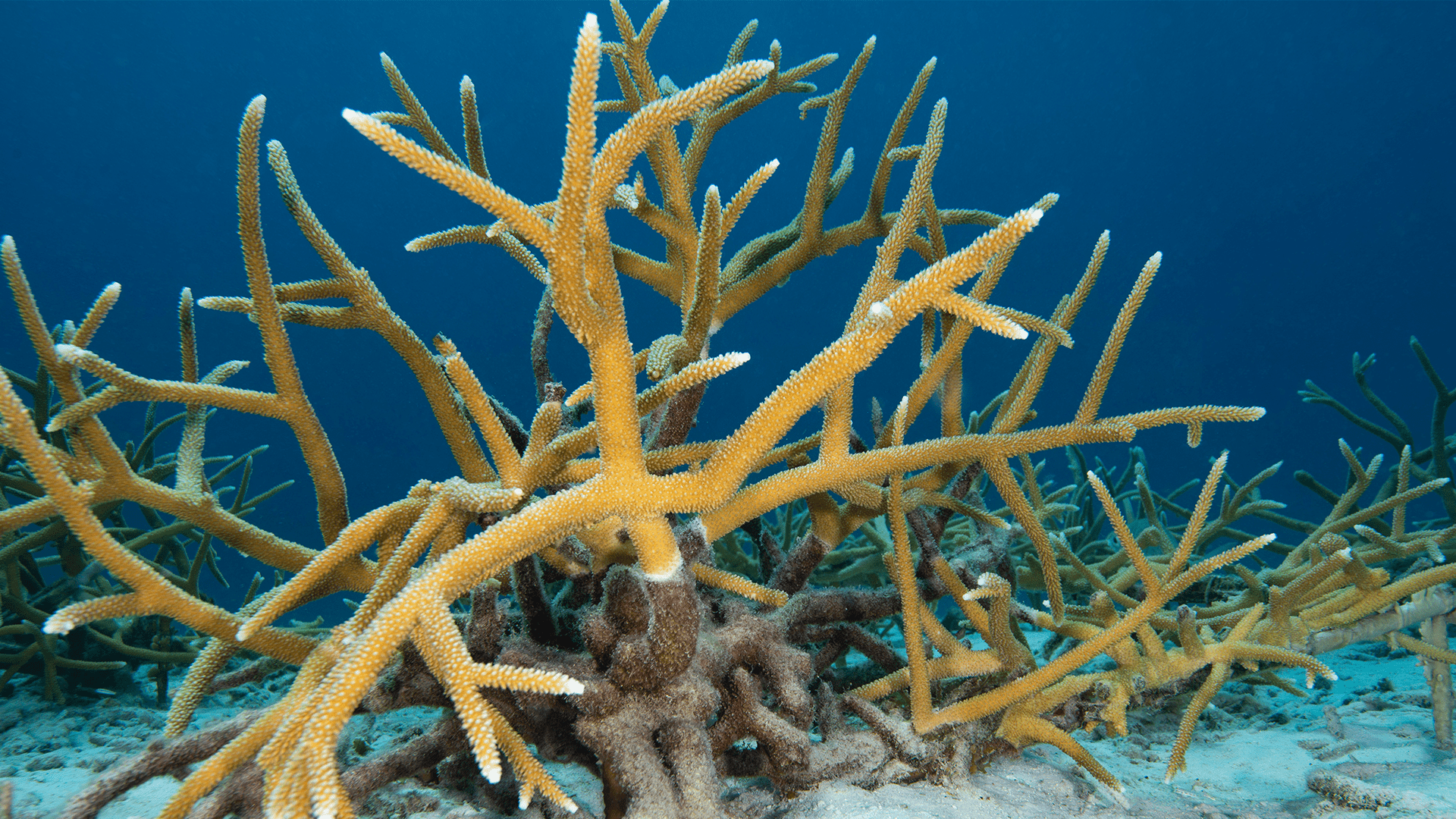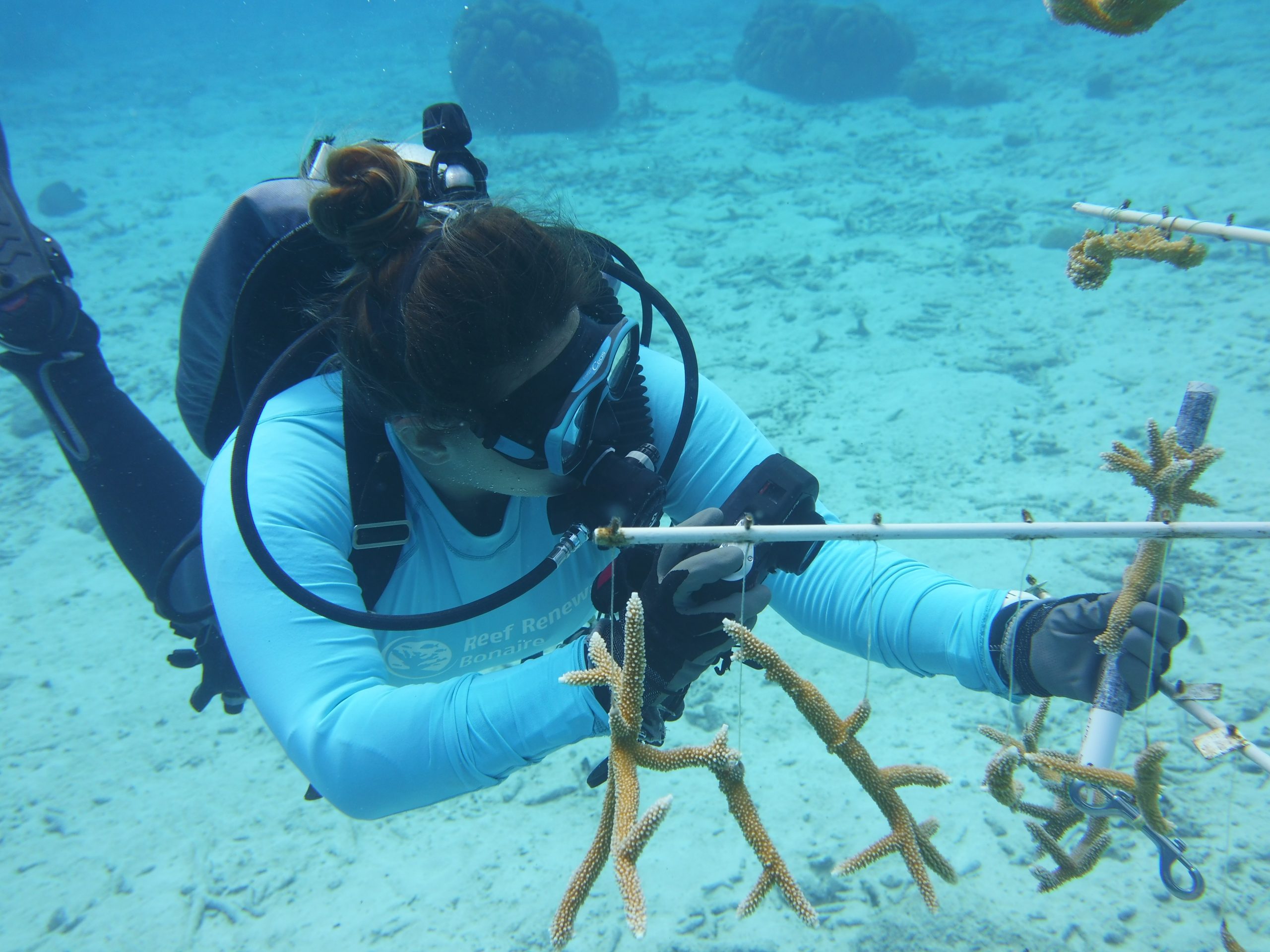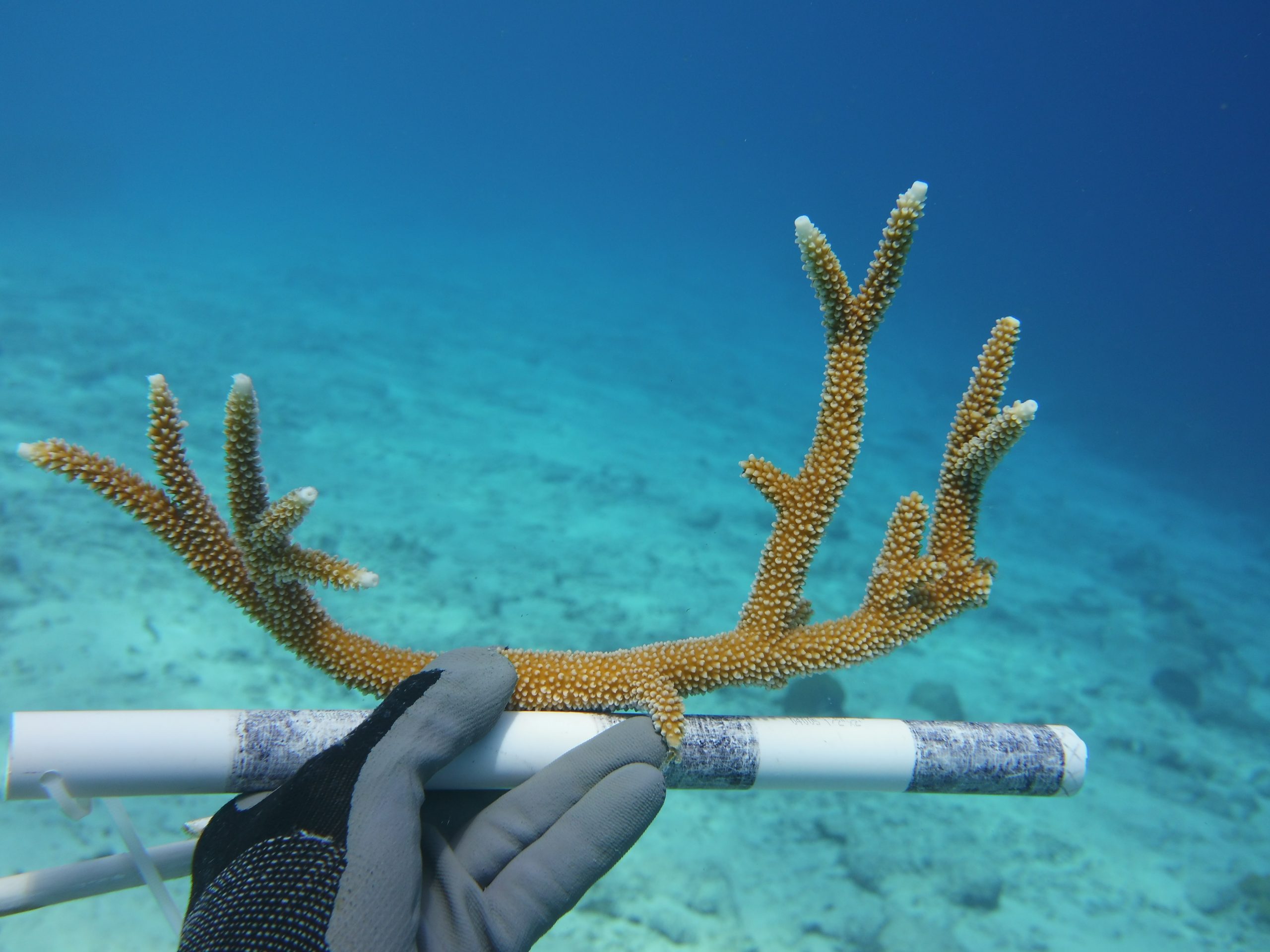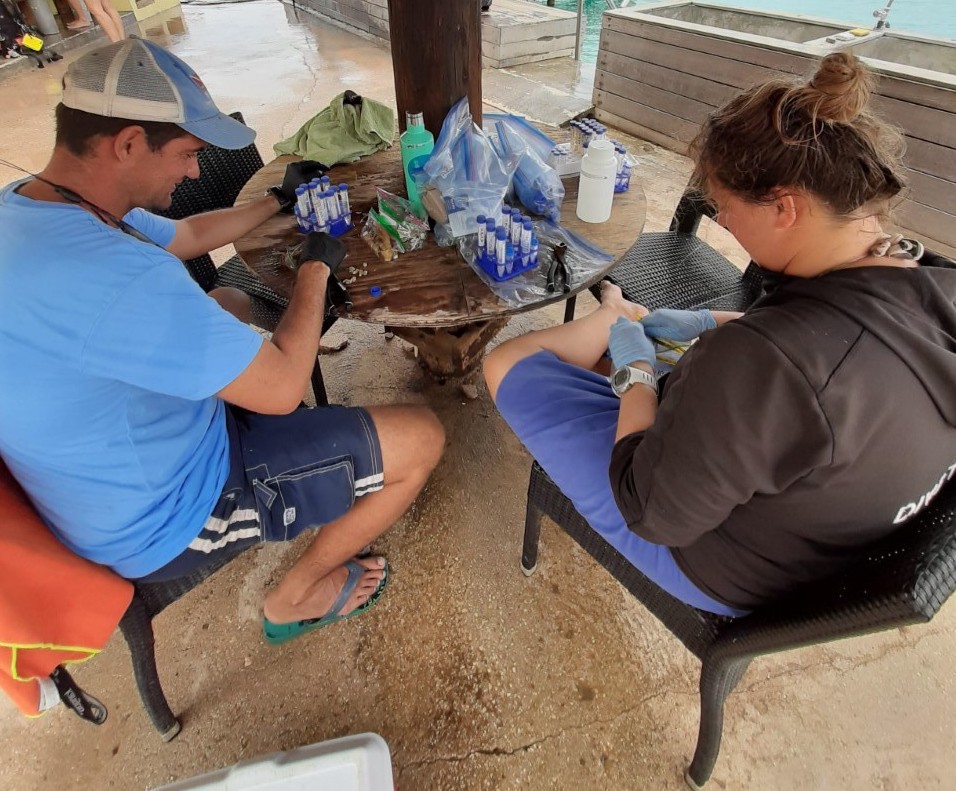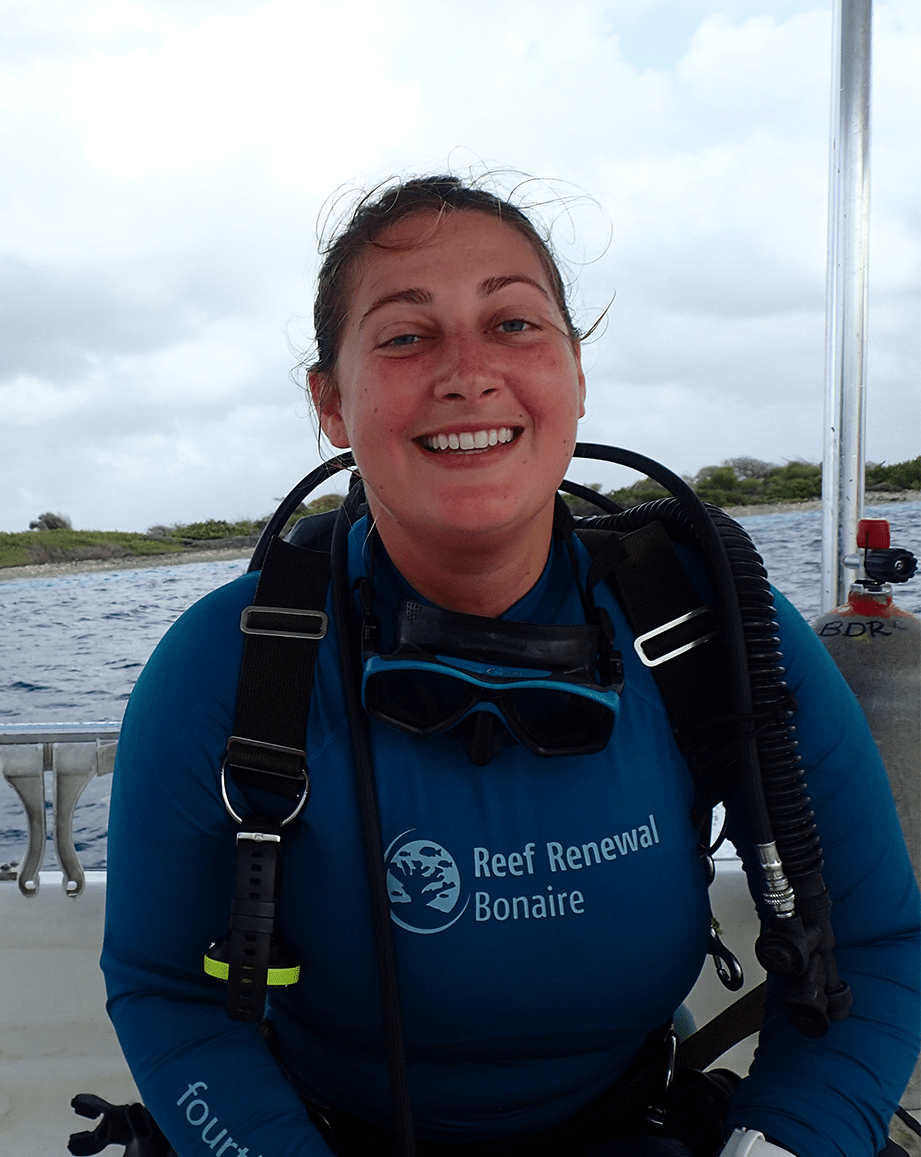In addition to her previous connections on Bonaire, one of the reasons that Serena chose to do her Ph.D. research there was the low risk of hurricane impacts on coral nursery and reef sites. However, she never would have guessed that there would be a halt in international travel due to a global pandemic. Like many other tropical islands, Bonaire quickly instituted a travel ban preventing international visitors in an effort to protect local residents from the spread of COVID-19.
Thanks to the amazing local collaborators at Reef Renewal Foundation Bonaire, the project was able to continue with minimal delays. After a few virtual training sessions and a large shipment of supplies, all coral and environmental monitoring and sampling tasks were successfully completed at the two remaining seasonal timepoints. The samples have all been safely returned to our lab at Florida International University.
The preserved coral samples are currently being analyzed for health metrics including symbiont density, chlorophyll-a concentration, total protein, and biomass. DNA has also been extracted from the coral samples that will be used for the characterization of DNA methylation patterns with the Methylation Sensitive Amplification Polymorphism, or MSAP, method which has been optimized for Acropora corals by our lab. Water samples are also being analyzed for the concentration of total Nitrogen, total Phosphorus, and dissolved inorganic nutrients.
Serena is excited to explore connections between coral health and DNA methylation and to compare the influence of coral genotype and environmental conditions on coral performance. Preliminary results have shown differences in coral growth between corals of the same genotype that are living at different coral nursery sites. During the next phase of the project, Serena will perform a reciprocal transplant to see if these differences in performance are maintained over time through coral environmental memory.
This work has been made possible by support from Reef Renewal Foundation Bonaire, FIU CREST-CAChE, FIU Center for Coastal Oceans Research, and FIU Tropics.


